Enterprise Resource Planning (ERP)
Enterprise Resource Planning (ERP) is software which was written with the ability to deliver an integrated suite of business applications. ERP tools share a common process and data model, covering broad and deep operational end-to-end processes, such as those found in finance, HR, distribution, manufacturing, service and the supply chain.
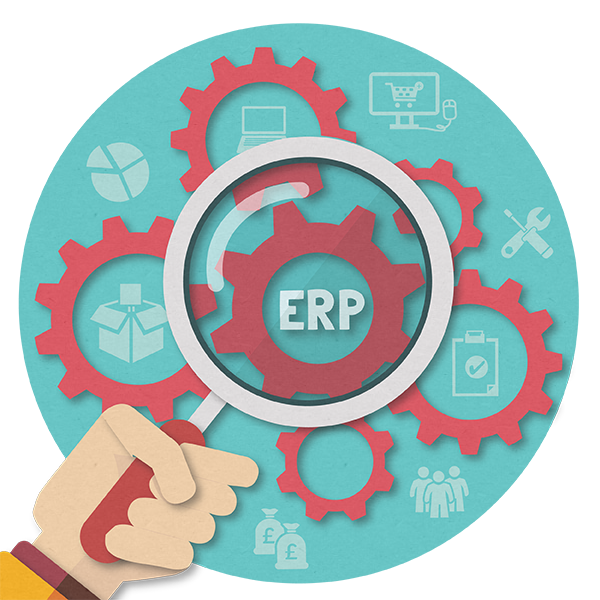

What is Enterprise Resource Planning (ERP)?
Enterprise Resource Planning (commonly referred to as ERP) is a business management software that manages and integrates a company's core processes. ERP systems share a common process and data model, covering broad and deep operational end-to-end processes, meaning data can be easily retrieved, managed and interpreted.
These processes include:
- Finance
- HR
- Distribution
- Manufacturing
- Service
- Supply chain
In the past, businesses had separate systems managing each of these processes, meaning the data was disjointed and made collaborative working between departments difficult. With ERP software this is no longer an issue as all departments operate within the same system.

Why is ERP important?
Think of your ERP system as the core of your business. Everything revolves around it. Bringing together every department in your business and storing it in one central database means a solid foundation for your staff to work from.
Every industry has specific requirements and standards to adhere to. An ERP solution makes this easier - for example, Dynamics 365 Business Central contains 'Making Tax Digital' functionality to help you comply with the UK Government's tax regulations.
Utilising an ERP solution within your business could mean you benefit from the following:
- Cost saving through integrating multiple systems into one
- Improved productivity of your staff, as they will no longer need to switch systems
- Better analytics as the required data will all be stored in one central location. Data can also be plugged in from various sources, using tools such as Microsoft Dataverse.
Read our guide on 'The Alternative Guide to Buying ERP' to understand the selection processes businesses should go through when considering ERP solutions.
Understand the fears around implementing a new ERP

Common fears around implementing an ERP
Businesses looking to implement a new ERP solution often experience similar fears, mostly related to cost, timing and project failure.
Here are some of the common fears around implementing a new ERP:
- ERP implementation failure could mean a halt to all business processes - the normal day-to-day activities would grind to a halt without a working ERP
- A large amount of time is required to get a project done - there just never is a good time to start a new implementation. Implementations take an average of 21 months to complete, requiring your staff's dedicated time
- Selecting the wrong ERP implementation Partner to work with - this could be the make or break decision for your business. Choosing a suitable Partner means a strong working relationship, good communication and adaptability
Choose a Partner that fills you with confidence, based on their knowledge and skills. We've created a guide to help you with your ERP implementation Partner selection - download it here.

Why should you implement a new ERP System?
Finding the right Enterprise Resource Planning system and Support Partner for your business can provide your business with significant benefits. But implementing or changing an ERP system is not a decision to be taken lightly. It requires a lot of time and input from your best people.
For many people, it’s easier to find good reasons to not take the risk and therefore to not start the ERP implementation journey.
We are passionate about business applications like ERP and truly believe that well implemented and supported business software benefits both a business and its people.
TALK TO US ABOUT YOUR ERP PLANS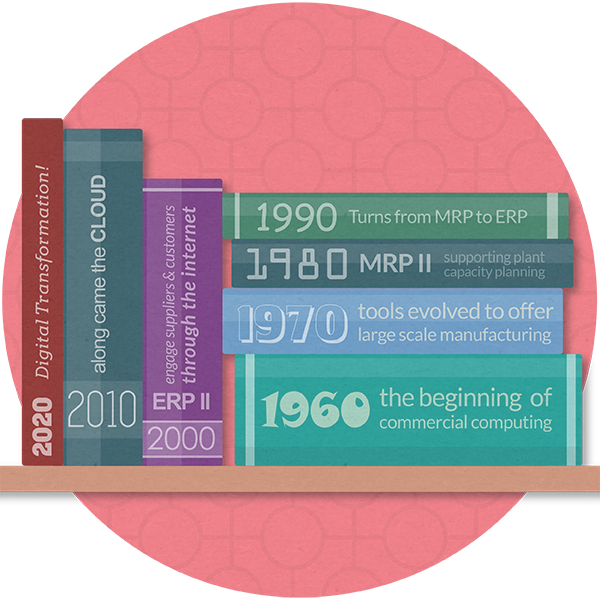
History of ERP Systems
The history of ERP systems dates back to the 1960s with the beginning of social computing. Through the 1970s these tools evolved to offer large scale manufacturing companies a more comprehensive approach to material requirements planning, which begat the name 'MRP'.
By the 1980s MRP tools had moved on to support plant capacity planning – at which point the term 'MRP II' was born. By the year 2000, Gartner were advising their clients to explore the opportunities that the internet created in terms of engaging suppliers and customers more closely with their ERP systems. This demanded a new name. The marketing people got involved again and came up with ERP II (you see what they did there).
In or around 2010, came 'cloud'. Cloud has transformed the market for ERP software. You can read more about how cloud computing has transformed ERP here, alongside a further history of ERP.
History of Enterprise Resource PlanningOur talented team of experts are what makes us the best choice for your ERP project!

Microsoft Dynamics ERP
We are passionate about the Microsoft Dynamics ERP, Dynamics 365 Business Central. Previously known as Dynamics NAV (and prior to that, it was called Navision), we have adored working with this product since version 1.0.
Dynamics 365 Business Central is part of Microsoft's Dynamics 365 family of products and is the only ERP system that we implement and support. It is a world-class solution that can scale, adapt to any industry and extend through Microsoft-approved extensions.
We're convinced it can work for any business, no matter how nuanced your processes or how niche your area of expertise.
See Business Central in action Learn moreWhy we work with Microsoft
We improve the lives of business system users to enable them to add more value within their businesses using a Microsoft Enterprise Resource Planning system. We do that by making smart use of technology and providing great service.
- Smart use: We strive to deliver solutions that are well architected and easy to use.
- Which technology: We deliver solutions based on Microsoft technologies.
- Great service: We have great people and strength in depth. We’re refreshingly honest and very direct.
Why Microsoft?
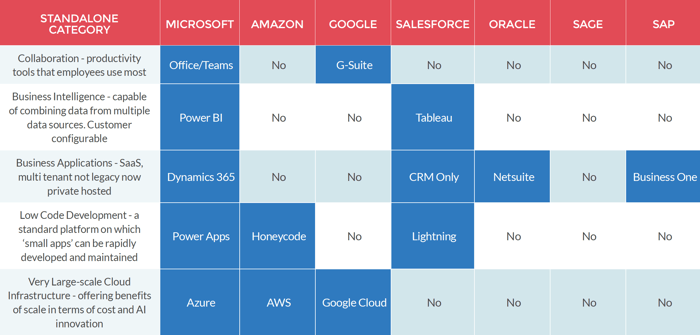
Individually Microsoft has products that are number 1 or number 2 in each of these categories. In combination Azure, Power Apps, Dynamics 365, Power BI, and Office/Teams make Microsoft’s offer unique – and save our customers money.
How so?
- User experience: Microsoft products have a similar look and feel. This accelerates user adoption.
- Integration: Microsoft provides this 'out-of-the-box'. That means we don’t have to build it – which reduces the number of days it takes us to deploy solutions.
- Skills availability: Lots of people know each of these products. Access to a big talent pool has an impact on our salary costs – which has an impact on the rates we charge.
There’s another significant factor that we want to be transparent about - we've been lucky. We backed a winner. Navision became Dynamics NAV which became Dynamics 365 Business Central. As a result, the skills and experience we’ve gained over 30 years are still very relevant. We’ve not got many small groups of people focussed on different ERP solutions. We’ve got a big team that gives our people colleagues to learn from, career progression and the ability to deliver great service to customers.

Azure Integration Services and your ERP
Microsoft's Azure Integration Services technology can be used to connect your ERP to various other systems in your business. This could be a CRM, a website, a warehouse - the possibilities are endless. By connecting your systems in this way, you can push and pull data from and to your ERP with ease.
You therefore benefit from a standard method of communication between your business systems, rather than complex, independent integrations. You also only need to monitor one location for data transfer errors, reducing work load and time consuming manual effort.
We have a sister brand, called The Power People, who specialise in integrations of this kind. They also design, build and support business applications using the Microsoft Power Platform suite of technologies.
Read more about The Power PeopleChoose Your Industry
If you're looking for something more specific to your industry, check out the pages below. Our experts have worked on countless projects across industries such as Retail, Fashion, Beverages and Furniture and have the expertise to assist you in any capacity you require.

The Alternative Guide to Buying ERP
Selecting an Enterprise Resource Planning solution to implement can be a tricky business.
There used to be hundreds of different ERP solutions to consider. Now there are just four viable solutions. Vendors will tell you that selecting their product will define the success of your project. We disagree.
Each of the above systems will largely meet the needs of your business and as such, the key (and first) consideration isn’t which platform you should choose, but rather who you should enlist to help you. In our free guide, The Alternative Guide to Buying ERP, we highlight how you can modernise your approach to ERP selection and ensure your deployment project is a success.
Download our guide to find out:
- What’s going on in the ERP software market
- The six factors to consider when evaluating ERP products
- What best practice selection processes look like
- Why your choice of partner and their cultural fit with your organisation is key to success
Your choice of partner will truly impact the success of your enterprise resource planning deployment project, so choosing the right partner – one which has the expertise and ‘fit’ you are looking for – will put you on the path to progress.
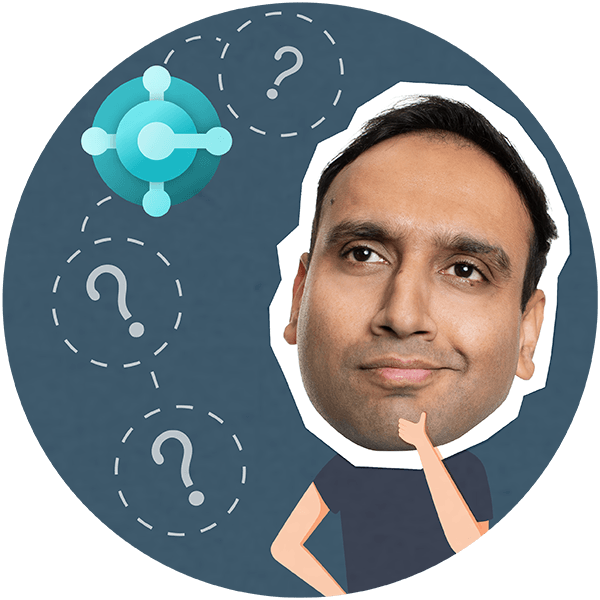
Choosing the right ERP for an International Organisation
When international organisations contemplate the implementation of an ERP system, a recurring and fundamental question emerges: should they choose centralisation or decentralisation?
The contradictive aspects of this decision can be unsettling, but Microsoft Dynamics 365 Business Central offers a potential solution to bridge the gap, providing flexibility and control for international operations.
Given its robust capabilities in international transactions, customised configuration, standardisation, multi-language support, streamlined accessibility, and a comprehensive range of functionalities, Dynamics 365 Business Central has rightfully become the preferred ERP solution for international organisations.
It caters to businesses of various sizes and structures, extending support to operations in over 100 countries and adapting to unique business models to meet specific needs.
READ MORE IN OUR BLOGInterested in the options to extend and customise your ERP solution?
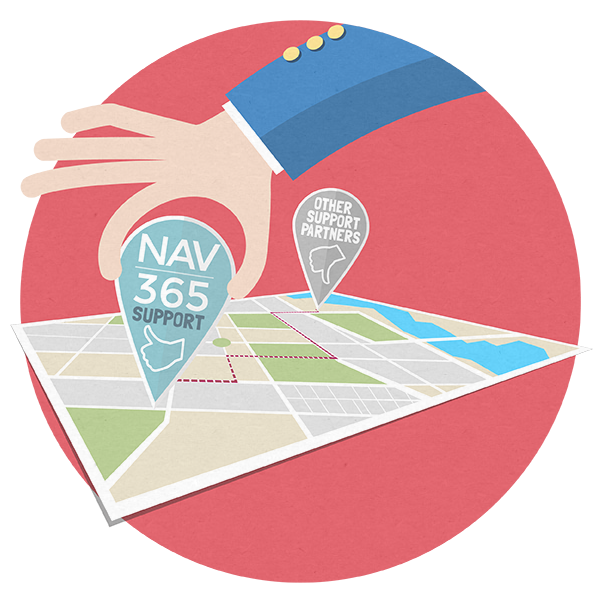
Pick a Partner, Not a Price
When implementing an Enterprise Resource Planning system, cost is always a key consideration. There are often several ‘costs’ to consider: the cost of deployment, the cost of support, the cost of training and so on. Many businesses try to get a fixed or estimated cost from a Partner upfront, typically choosing one that is ‘less expensive’.
But choosing a ‘less expensive’ Partner is no guarantee. The truth is that the cost of an Enterprise Resource Planning implementation project – regardless of the initial estimate or fixed cost given – is dependent on the days spent on it. The best way to control the cost is to look at other factors, e.g. the partner’s people, culture, methodology and expertise, to mitigate potential risk.
In our ERP Pricing Guide, we address the main questions businesses have about ERP implementation projects, as well as:
- Estimated vs fixed price costing
- Real-life ERP deployment stories
- Evaluating ERP partners
- How to reduce risk, scope and timelines
If you want to find out more, you can download our guide for free by pressing the button below.
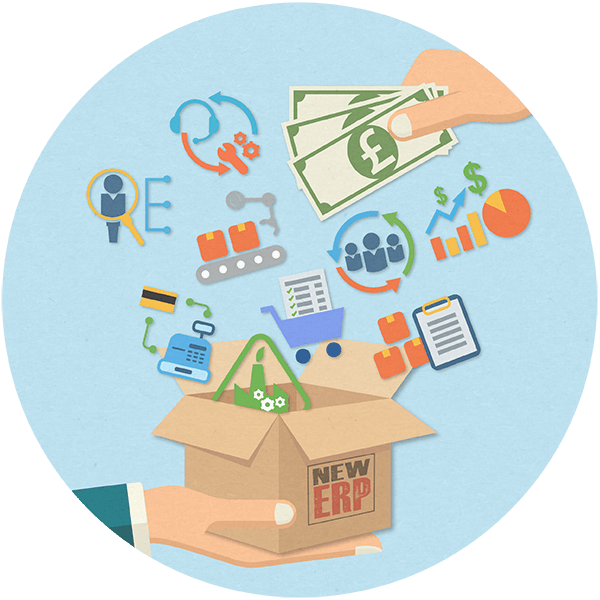
What are your priorities when buying ERP?
Buying a new ERP system is never a decision made lightly. Microsoft commissioned research on the priorities of IT decision makers when it comes to purchasing Enterprise Resource Planning software.
Are you determined to improve your financial processes? Do you need to improve workplace productivity? All of the above are typical priorities for businesses when considering a new ERP solution.
Read our blog to discover the top priorities of IT decision makers, the top five challenges customers come up against and what's driving the change.
Read our Top ERP Priorities Blog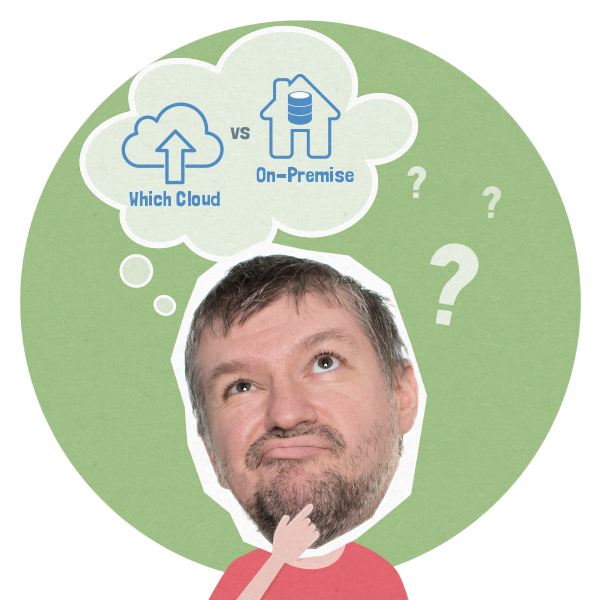
Hosting your ERP System
When you choose a new ERP system, an important consideration is where to host it. This could be in the cloud, utilising the latest technology, in a Software-as-a-Service type agreement.
The solution could be hosted by a Partner like us or hosted within your own servers. Some ERPs don't have much flexibility in where they are hosted.
Dynamics 365 Business Central, the ERP we implement and support, can be hosted in any of the ways mentioned, depending on how involved you wish to be with the hardware and the inner workings of the system.
Read more about the hosting optionsImplementing an ERP system
From installing software and transferring data, to mapping processes and training users – implementing a new ERP system can be time-consuming and challenging. Common issues during implementation are missing data, tools not working properly, insufficient testing and lack of budgeting.
But what if your ERP implementation process could go smoothly and the final product had everything you needed? With our implementation methodology – called the 'Day in the Life’ – we develop a model of your business within Dynamics 365 Business Central. Your data can then be experienced in a real business environment.
This process ensures you get a solution that works in context with the items, suppliers and customers you know. We have unparalleled expertise and knowledge of Dynamics 365 Business Central - read more about our team here.
More on ERP ImplementationLooking to implement a new ERP? Our friendly team are here to help!
How much does it cost to implement an ERP system?

Training and management
You may need to train your team on how to best use the ERP platform once its implemented and develop policies on how data and activities are managed within it
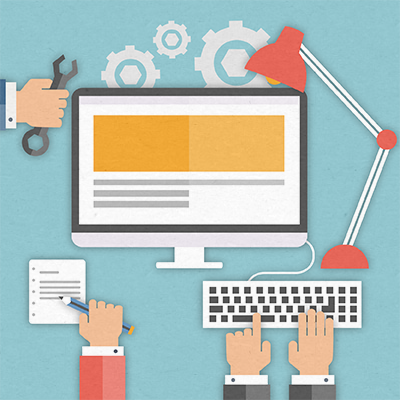
Maintenance and upgrades
What if your ERP system has problems that you can’t resolve yourself? You then have to call up your partner to request their help in rectifying them. Also, what if you need to upgrade your system to get access to new and more powerful features?

Costs incurred by the implementation
As your ERP system is being implemented, you may want to make changes to the specifications and add on new modules or advanced features. Not only does this add to the base cost, this also adds to the cost of adding and customising the solutions!
Check out our Top Resources:
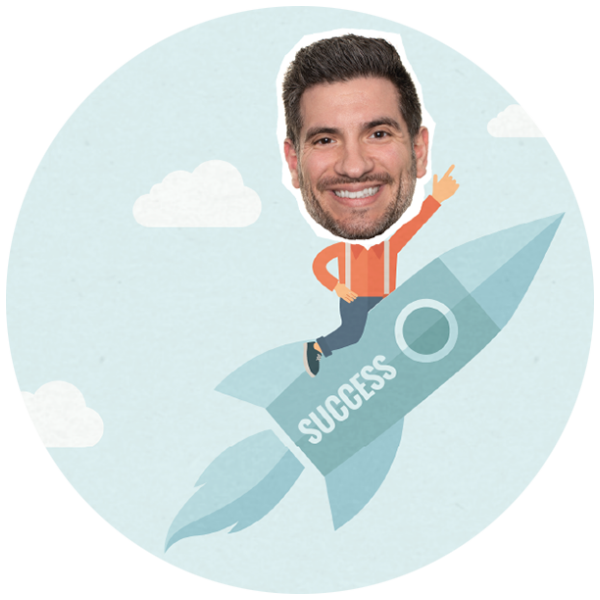
Why the excitement about cloud ERP?
What is the history of cloud ERP? How has it grown to become the buzz term amongst decision makers we hear today? Read our blog and find out more about why we're excited about cloud ERP and what to expect from a cloud solution.
Read the blog here
Start with what you can do with your ERP system
Ian Humphries, Founder of TNP, provides insight into how to successfully kick off an ERP implementation, and why it is important to focus on what you can do with your ERP system rather than starting with what 'it might not do'. He also covers TNP's 'Day in the Life' methodology and why it's a great way to start your ERP project.
Read the blog here
Rapid Enterprise Resource Planning Implementation
The idea of a rapid ERP implementation may seem too good to be true, but in our experience we have found that sometimes the need to get your system up and running outweighs the 'go steady' approach. Our blog covers what we mean by a rapid ERP implementation and how the process works in practice.
Read the blog here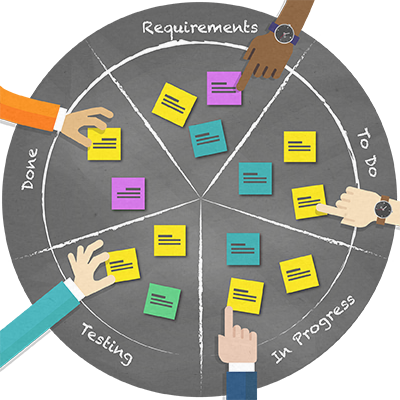
Implementing an ERP system with Agile
An Agile process is widely used in ERP implementations with great success. TNP use an Agile approach for ERP software projects as it allows for a step-by-step process and eliminates nasty surprises early on for a smooth go live!
Read the blog here
Why Vertical ERP doesn't work
Our blog covers our thoughts on how economics undermine the future of vertical ERP software providers using companies that grow fresh produce as the example. It also covers what makes TNP's approach to ERP solutions different.
Read the blog here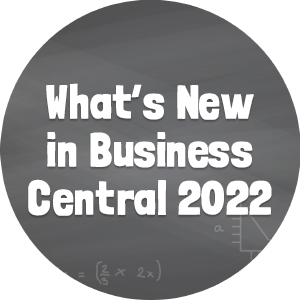
What's New in Business Central
See our favourite new features within Business Central and get an understanding of how it could boost your business productivity and automate your day-to-day processes.
Watch hereMicrosoft commissioned a survey into IT decision makers' priorities when buying ERP
Customer Stories
Are you looking to replace your ERP system? Unsure of the customisation options available to you? Why not check out our customer stories to learn more!














